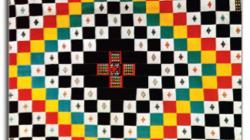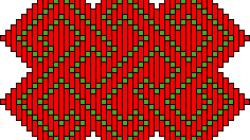AWMA virtual Seminar n°7
The speaker, Aboubakar Maitournam is an Associate professor at Université Abdou Moumouni de Niamey, Niger. Holder of a doctorate in applied mathematics (medical image processing, algorithms, probability and statistics); Aboubakar Maitournam was a postdoctoral and contractual researcher at the Pasteur Institute and at the NIH / NCI in the USA, then head of the mathematics and computer science department of the Université Abdou Moumouni and director of statistics at the Ministry of National Competitiveness and the Fight against Life Dear. He participated in the data analysis of the Listeria Monocytogenes genome sequencing project and in the statistical processing of gene expression data at the Pasteur Institute.
In 2020, he is the winner of the “International Fatma Moalla Award for popularization of mathematics”, for an article entitled “Boolean algebra, informatics and the era of metadata” and for all of his scientific output.
|
Conference online Link |
Register to attend: https://univ-lille-fr.zoom.us/webinar/register/WN_qfE61g-KTzOGYWof-MmT1w |
| Meeting number (access code): - | |
| Meeting password: - | |
| Date | Thursday, April 01, 2021 |
| Time | 14:00-15:00 (UTC) |
| Speaker | Dr. Aboubakar MAITOURNAM |
| Affiliation | Université Abdou Moumouni de Niamey |
| Domain | Statistical learning theory and design of clinical trials |
| Title | A Bayesian gene expression-based classifier for treatment outcome prediction |
| Abstract |
In this talk, we deal with the comparison of control and treatment groups in the clinical trial setting, by assuming that patient outcomes are depending on their gene expression profiles. This dependence is now well-established in cancer taxonomy and treatment settings, therefore allowing the efficient design of targeted clinical trials and the individualization of therapy. Patients are first assayed for study eligibility, then are randomized between the control and treatment groups. In order to assess the treatment effect, the comparison is done by means of Bayesian subset analysis. This allows us to build a gene expression-based classifier for treatment outcome prediction. For this objective, we first remark analytically that the multivariate (multi-gene) regression model leads to numerous problems related to Big data paradigm as the phenomenon of overfitting. Therefore, we propose a single (univariate) gene model whose main interest is to overcome the curse of dimensionality and to enable a massive parallelization of prediction process. Finally, the classifier is built by combining all single gene models and by calculating a probability of treatment. |
- Find attached the slides of the talk.
-
You can find the recording video for the talk by visiting: https://univ-lille-fr.zoom.us/rec/share/fmowpYh6ROB19afzbYwWPsCtuv-233HvTHWzYWy7d4oUny2LV7Obuc3TIRg4XxNM.2aQDwaJn0q71Cnka
Passcode: s1HH#2p6






